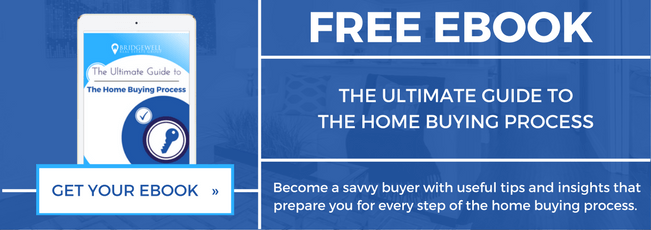What Does a Real Estate Agent Do for a Buyer
What to Expect from a Buyer’s Agent
We often get the question: what does a real estate agent do for a buyer, or do I need a realtor to buy a home?
This blog will go in to more details on what to expect from a real estate agent when buying a home, and discuss the role of the buyer’s agent. Ultimately, your agent will help you to avoid potential pitfalls, guide you through the process, write and negotiate a legally binding contract, and help facilitate completion and possession of your new home.
We also go through the risks of purchasing through the listing agent and how to choose the right real estate agent to help you buy a home.
Not all realtors are the same – so you should choose your realtor wisely, and you can use the list below to weed out real estate agents that you do not want to work with.
Keep reading for the top things you should expect your realtor to help you with when buying a home.
What Does a Real Estate Agent Do for a Buyer?
The role of a real estate agent when helping you buy a home is to work within your best interests, provide and gather information on neighbourhoods & homes, help to avoid potential pitfalls, write and negotiate an offer for you, and guide you through the buying process until you get the keys to your new home!
Ultimately, the role of a buyer’s agent is to get you from Point A (thinking about buying) to Point B (happy homeowner) in the safest way possible.
While various real estate agents may have different processes and systems, you should expect your realtor to help you with the following:
Help with Financing & Closing Cost Preparation
One of the most important steps to take first when buying a home is to get pre-approved so you know exactly how much you can afford and whether you’ll be comfortable with the mortgage payment.
A pre-approval means that the lender has verified your income, credit, and employment. Looking at an online calculator is a good start, but they are not accurate as there are many different factors that a lender looks at to determine your affordability – such as credit, salary vs. self-employed, and how long you’ve been at your current position.
Most seller’s agents will insist on knowing whether or not the buyer is pre-approved at the time of writing an offer, as they’ll want to know that you have the actual means to afford the home you’re purchasing. A good agent should be able to offer different mortgage broker options who will be able to get your pre-approval started so that you can start shopping for a home with confidence!
Additionally, the pre-approval process will take into consideration whether you have funds on top of your down payment to pay for closing costs. When you are first planning to purchase, a realtor is there to help determine an initial closing cost estimate so that you know exactly what to expect at completion, and thus plan accordingly.
Some of these closing costs will likely include lawyer fees, property transfer tax, property tax adjustments, appraisal costs, and inspection costs… to name a few.
Related Article: Closings Costs When Buying a Home
Make You Aware of Any Exemptions You May be Eligible For
The real estate agent you hire should be aware of your situation and be offering recommendations on possible exemptions or government plans that are available to you.
For example, if you are a first time home buyer and purchasing a property under $835,000 then you could be eligible for the property transfer tax exemption with a total of $8000 worth of savings!
There are additional exemptions for GST, and government programs like the First Time Home Buyer Incentive, Home Buyer’s Plan (RRSP), and more that a real estate agent can help guide you through and offer their expertise as to whether the program is right for you.
Related Article: First Time Home Buyer Programs
Educate You on the Neighbourhood
Choosing your next neighbourhood and the process of starting to search for a home is one of the most fun parts of the home buying process.
Your buyer’s agent will be there to make sure that your new neighbourhood is the right one for you (and your family!), and will be there to assist you in understanding the things that are most important to you.
You will want to tell them what is most important, so that they can help you understand everything from neighbourhood schools and their rankings, transportation options, entertainment nearby, demographics, and of course the price that similar homes are selling for.
Help Looking for Properties & Booking Showings
A good real estate agent will have a system in place to help you find properties easily & quickly. While looking on realtor.ca or rew.ca is a good option, realtor MLS search functions usually have more detailed and full information – which your realtor should be providing for you through auto notifications straight to your email!
As a result of this, they should be helping you look for properties, find new listings, and notify you of price adjustments that match your home search preferences. They should also be providing you with information on sales activity so that you have an idea of what is going on in the market that you’re interested in, and set an expectation on how much you may have to pay for a property.
When you work with a real estate agent to find a list of properties you like, they will also be helping you to book showings, coordinate showing times & access with other listing agents, and attending showings and open houses with you so that they can provide their knowledge & feedback when viewing the homes.
Share their Network & Make Recommendations
There are a number of people involved in the buying process – it’s more than just the Seller, the Buyer, and their agents! You’ll also want to make sure you have trusted professionals that include a mortgage broker, inspector, and a lawyer/notary. (to start!)
It’s the realtor’s job to make sure that you have a solid support team and are in touch with the right professionals.
What’s more is that a good buyer’s agent can continue to be an on-going source for home professionals once you own the home, and should be able to refer you to contractors, plumbers, and whoever else you need!
Prepare a Legally Binding Contract
There are a number of terms that need to be included in the contract to ensure your safety, and the real estate agent for the buyer will be the one that prepares the contract and presents it to the listing agent/seller.
A buyer’s agent is there to keep you safe and make sure all the necessary terms and warrants are in your contract so that the process from a firm deal to completion is smooth sailing.
A warrant is there to hold the seller accountable, and an example would be: the seller warrants that the property will be free of garbage and debris on possession day and be professionally cleaned. Do you want to move into a place that’s disgustingly dirty all because you didn’t put in a warrant? I don’t think so…. It’s all in the details, and a good real estate agent should know how to write a rock solid contract.
Negotiate an Offer’s Price and Terms
The role of the real estate agent for a buyer when negotiating the offer is to communicate with the listing agent and/or seller on your behalf to negotiate the best price and terms.
In preparing the offer, they will provide you with a comparative market analysis for the property that you are interested in so that you can understand what market value and a reasonable price to agree upon would be. The buyer’s agent will be able to pull recent sold properties, active comparables, and expired listings in the subarea and the city, and will be able to advise you on how the differences in properties affect value (for example, lot size, view, bathrooms, renovations) so that you can feel confident that you are not overpaying for the property.
Upon analyzing the sales data, a great Buyer’s Agent will be familiar with the market that you’re looking to buy in and understand market trends so that they can advise you on an offer strategy and original offering price.
Once you have the initial offer prepared, the real estate agent for the Buyer will present the offer to the seller and/or seller’s agent, and continue to negotiate back and forth until both parties reach an acceptance. In addition to negotiating the price, what is sometimes forgotten is the importance of the buyer’s agent to also negotiate the best terms! Terms in the contracts are matters like completion/possession/adjustment dates, subjects, and warrants, and they also play an important role in the offer process.
Related Article: Real Estate Clauses for Contract
Perform Due Diligence
When you’re buying a home, especially if you’re a first time home buyer, you don’t know exactly what you want – and that’s normal! The buyer’s agent is there to ask all of the right questions that you may not even think of.
A big part of a Buyer Agent’s role is helping you do your due diligence on the property, specifically during the time of subject removal. This may involve things such as:
Fully investigating the property that might not be visible at the first glance. They’ll have seen enough properties to know what is normal, and what’s considered strange. The second step to this will be to assist in appointing a home inspector so that they can provide a thorough inspection of the property that the common eye can’t see.
Reviewing the property disclosure statement & bringing important items to your attention. The buyers agent will be there to carefully inspect the property disclosure statement to determine if there are any red flags. Have there been any water issues in the basement? Were the renovations completed with permits? Are there any issues with the neighbours? All of these will be important when making your decision to buy the house.
Finding out about the ongoing costs of the property. You’ll want a full picture of what your monthly cost is for heat, hydro, and water, and if it’s a strata property – what’s included in the maintenance fee.
Reviewing the strata documents and identifying any red flags. If you’re buying a town home or condo, there are hundreds of pages that the realtor should be assisting you to read through. This usually includes council meeting minutes for 2 years, annual general meeting minutes, depreciation reports, engineering reports, bylaws, strata plans, Form B, and much more.
Ultimately, the Buyer’s Agent is there to help you make sure that you don’t buy the wrong house. Their most important job is to help you with your due diligence so that you can make an educated decision on whether to move forward with your purchase, and whether it matches your lifestyle and goals.
Help to Finalize Loose Ends for Closing
There’s a lot that can go wrong between the subject removal date and completion. There’s also a lot that needs to happen! The deposit needs to be handed in on time in trust to the buyer’s agents brokerage, you need to meet with the lawyer, all documents including mortgage information needs to be sent through conveyancing, and much much more.
Without a buyer’s agent to help you, you can get lost in the process and even worse off, end up with a law suit. To ensure everything goes smoothly, make sure to hire a professional buyer’s agent that is extremely experienced with how to put a contract together.
Put your Best Interests First with a Fiduciary Duty
Having a realtor represent you on the buying side of a real estate transactions ensures that you have someone working for your best interest.
The listing agent is working for the seller – not you – and in what is probably the largest purchase you’ve ever made, you’ll want to know that you’re best interests are put first. With a fiduciary duty, they will keep you protected as they will be dedicated to you and no one else.
Choosing a Realtor to Help You Buy a Home
Who you choose to work with is essential to your success, and we believe that you should have high expectations when choosing an agent. After all, you are making a huge purchase that could quite possibly the biggest asset of your life.
Having the right agent help you buy a home can mean the difference between:
- Overpaying vs. paying market value
- Moving in to a neighbourhood with likeminded professionals vs. moving in to a sketchy area
- Unknowingly buying a house that was a former grow op vs. knowing beforehand and being able to make the decision to walk away from the home without putting any money down
- Losing money on your investment vs. making money & being cash positive
The realtor you choose will need to be someone you can trust (check their reviews!), that has experience in the area you’re interested in and the type of home you’re buying.
If you’re looking for a real estate agent to help you buy a home, then reach out to us!
We provide you with all of the points that we mentioned you should expect at a minimum from an agent when buying but check out the extra perks Bridgewell Group will provide you when buying a home: Buying with Bridgewell
Avoid Buying with the Listing Agent
Limited Dual Agency is where one realtor works for both the buyer and the seller.
Recently banned in BC in almost all cases, dual agency becomes a conflict of interest as the it’s nearly impossible to fully exercise full fiduciary duty and represent two opposing clients with different motives. The seller is trying to get the most amount of money for the home, and the buyer is trying to get the least… how can you possibly represent both while fulfilling your duty to both clients entirely?
More and more buyers hire a buyer’s agent, especially in a hot competitive seller’s market to avoid dual agency and make sure that their best interests are protected.
Hiring a Realtor to Represent you in your Purchase is FREE
Buyer’s do not pay commissions to their realtor, because once you find your home and the deal is sealed, the seller will be the one paying your realtor.
This makes these services free to the buyer, which is why hiring a realtor is an even better idea – their experience, education, and time is all free!
—
Are you thinking about purchasing in the near future? If you’re looking for a realtor to work with you and guide you through the process, then give us a call or text at 604-319-0200. or email [email protected] to start a conversation.





